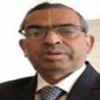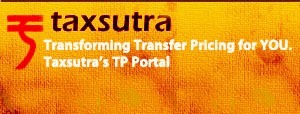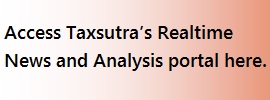- HC : Managing investors' money under 'trust structure' by VCF not taxable: Reverses CESTAT-order
- Textile Ministry notifies extension of RoSCTL Scheme on export of Apparel/Garments till March 31, 2026
- HC: Directs MOF to consider request to exclude specialized Laser Marking Machines from ADD-levy; Disposes writ
- Himachal Pradesh HC declares ‘Water Cess’ levy on hydropower generation as ‘unconstitutional’
- DGFT notifies export quantity of essential commodities to Maldives, removes curbs
The uncertainty of taxing intra-state supply of goods

N. Sriprakash, Advocate
The attempt of this Article is to place before the reader certain aspects relating to Tax on Supply of Goods under the newly introduced Goods and Services Tax laws (hereinafter referred to as the ‘GST laws’) and some possible questions which could arise in the future.
Prior to 01.07.2017, State legislatures in India had the power to impose a tax on the sale or purchase of goods in exercise of the power conferred by Article 246(3) read with Entry 54 of List II (“State List”) of the Constitution of India, 1950 (hereinafter referred to as “the Constitution”). That plenary power of the State Legislatures was circumscribed by various constitutional limitations. One of them being Article 286(1)(a) of the Constitution. That Article prohibited State laws from imposing a tax on sale or purchase of goods when a sale or purchase took place “outside the State”. Parliament under Article 286(2) was also required to formulate principles for determining when a sale or purchase takes place outside the State.
In exercise of the power under Article 286(2) of the Constitution, Parliament enacted Section 4 of the Central Sales Tax Act, 1956 (hereinafter referred to as the “CST Act”). That provision contained principles for determining when a sale or purchase takes places inside a State and therefore outside all other States. State legislatures across India in their respective enactments also fixed the situs of their taxable sales in accordance with Section 4 of the CST Act. They could not do otherwise, because of Article 286(1) and (2) of the Constitution.
The Constitutional restriction as above on State power of taxation and the formulation of the principles by Parliament under Section 4 of the CST Act were intended to ensure that a single sale or purchase transaction was not taxed by multiple States on the premise that an element of such a sale or purchase transaction was present within a particular State.
...Although with effect from 1.07.2017, the law on tax on sale or purchase of goods has undergone a complete transformation as a consequence of the introduction of the GST laws, the State power to impose taxes on the supply of goods continues to be constitutionally fettered. The Constitution (One hundred and First Amendment) Act, 2016 although has by Clause 13, amended Article 286 of the Constitution, the State power to tax supply of goods continues to be restricted as before. States under the respective States Goods And Services Tax Acts cannot impose a tax on the supply of goods, if the supply takes place outside a State. In other words, a single intra-state supply of goods cannot be taxed by more than one State Goods and Services Tax Enactment. As to when a particular supply of goods is to be treated as an intra-state supply and accordingly a supply outside all other States is provided for by Section 8(1) of the Integrated Goods and Services Tax Act, 2017 (hereinafter referred to as “the IGST Act”). The IGST Act thus performs the function of the erstwhile Section 4 of the CST Act. Section 8 of the IGST Act lays emphasis on two elements :
(a) Location of the supplier, (b) Place of supply of goods.
Section 8 of the IGST Act states that if the location of the supplier and the place of supply are in the same State or in the same Union Territory, the supply shall be treated as an intra-state supply. While Section 10 of the IGST Act prescribes principles for determining the place of supply of goods, the IGST Act is silent about the ‘location of the supplier of goods’. Although Section 2(15) of the IGST Act defines ‘location of the supplier of services’ , there does not appear to be any definition for fixing the ‘location of supplier of goods’. In the absence of any such definition, applying Section 8 of the IGST Act itself could present difficulty.
...It could also prompt authorities administering the GST enactments to adopt varying principles for fixing or determining the “location of the supplier”. Not only could that lead to different principles being adopted and therefore contribute to arbitrariness, such an exercise could also be impermissible in view of the Constitutional bar found in Article 286(1)(a) of the Constitution.
Besides the above, if one examines the language of Section 10(1)(a) of the IGST Act, the scope of the word ‘involves” found in that provision could also be open to varying interpretation. In the erstwhile Section 3 of the CST Act, the word “occasions” was employed. A sale or purchase which “occasioned” movement of goods from one State to another was deemed to take place in the course of inter-state trade or commerce. While the interpretation of that provision was fairly settled, its application to individual cases always presented difficulties and on numerous occasions, cases had to travel to the highest Court of the land for resolution. The language of the present Section 10(1)(a) does not appear to be free of doubt. The word “occasions” found in the erstwhile Section 3 of the Central Act is absent. Instead, as I have indicated above, the word “involves” is present. Consequently, a determination as to when a supply “involves” movement of goods has to be made for fixing the place of supply, That could take one back to the principles laid down by Section 3 of the CST Act. Equally, one could argue that the difference in language cannot be ignored and therefore the word “involves” found in Section 10(1)(a) of the IGST Act may have to bear a different interpretation.
...All this could therefore lead to uncertainty and hence disputes.








Comments
Very nice article
Aparna Nandakumar
Advocate